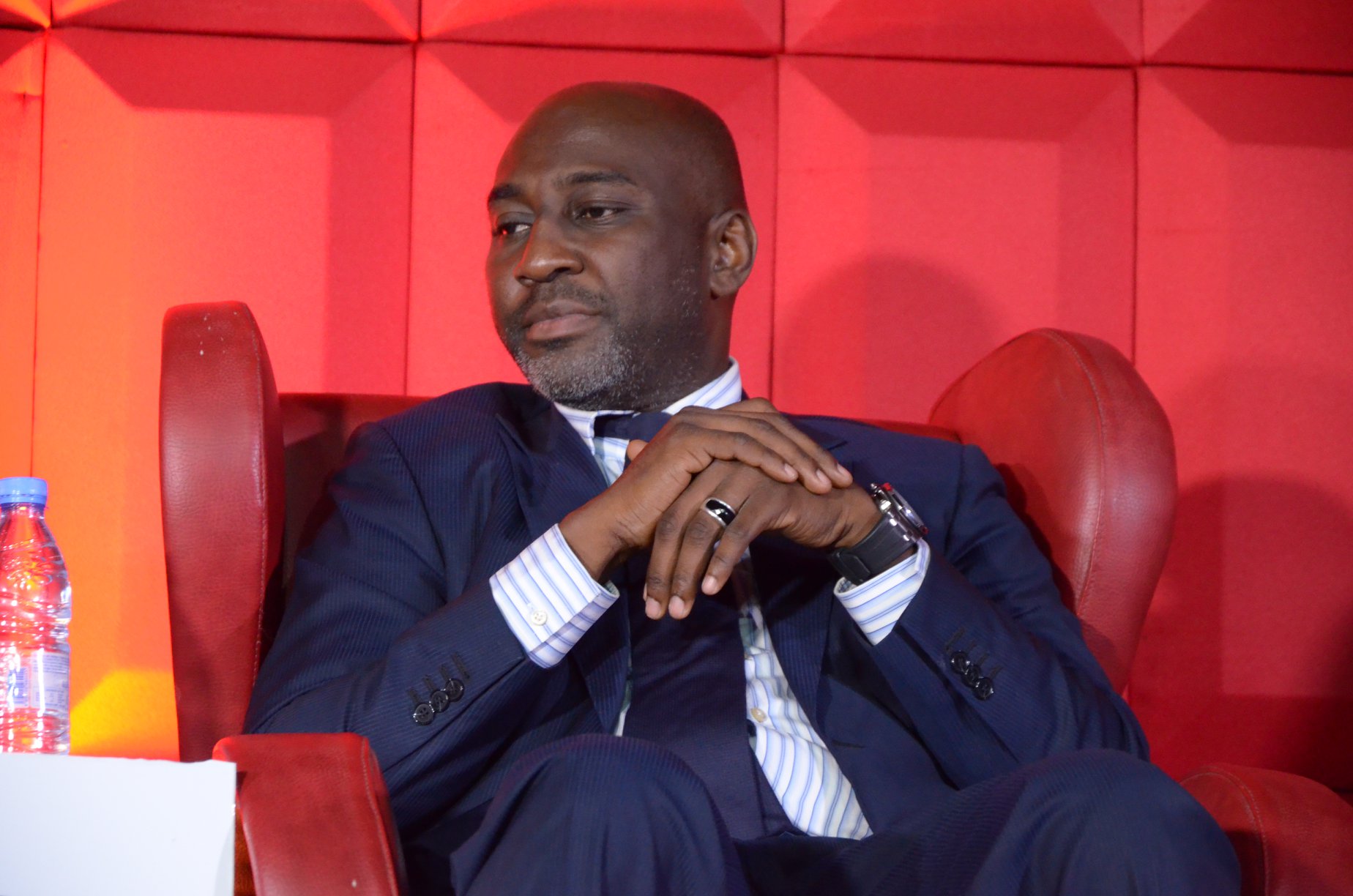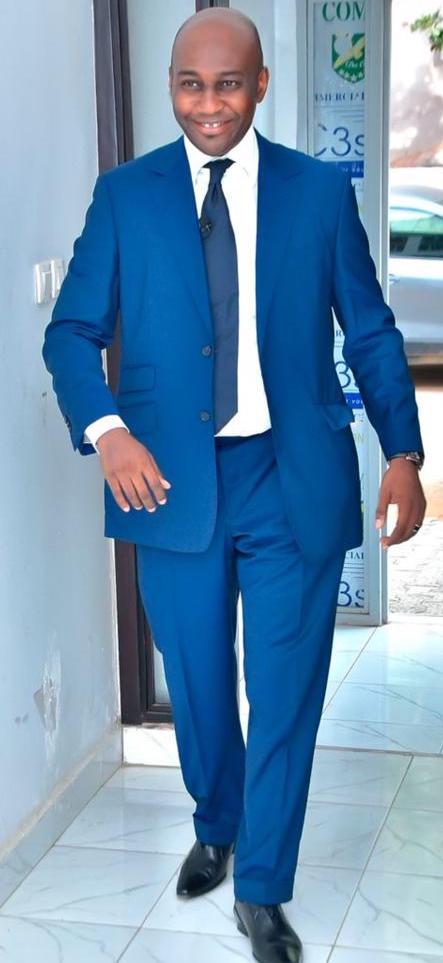Habib Mbaye (MBA.01) : Journey of A Presidential Candidate

From HEC classrooms to the Senegalese government, Habib Mbaye was raised in a family of influential political figures and charted his course between international finance and politics.
The 53-year-old politician grew up in Dakar, Senegal, with his five siblings. Thanks to his uncle Joseph Mbaye, a minister under President Mamadou Dia in the early 1960s, Habib Mbaye has been immersed in Senegalese political debates since childhood. “My uncle was one of the nine ministers who contributed to independence. Being raised by such a character developed my political culture and gave me the opportunity to meet many people,” he says.
At the age of 18, Habib left Dakar for France, where he was admitted to the University of Reims Champagne-Ardenne and earned a master’s degree in economics, market analysis, and industrial strategy. “I didn’t want to live in the French capital as a freshman because life there is bustling, glamorous, everything goes at 100 km/h. Living in the province was a wiser choice.” With his diploma in hand, Habib became an analyst for emerging countries at the SBF (a French stock market index). Attracted to the banking sector, he was hired by a major institution in Luxembourg where he worked as an analyst.
HEC as a Career Springboard
Seeking to boost his career, he heard about HEC’s MBA. “I liked my job in Luxembourg and I was making good money but I realized it wasn’t what I wanted to do with my life. I was just an executor, he said. So I looked for a way to progress quickly, and that’s when someone advised me to try applying for HEC.”
Despite his determination and effort, the admission exam caused him a lot of turmoil and anxiety. To join the school, there was no choice but to work tirelessly. “It was really tough… I resigned and went to seclude myself in Dakar to prepare for the entrance exam,” he recalls. “I had to be completely bilingual because the exam is in English, and I needed improvement in that area. I couldn’t afford to fail.“
Witnessing him abandon everything to join HEC, his loved ones were worried. “I remember at the time, my mother said I was sick. She thought someone had put a spell on me. Why resign from my well-paying job at a bank in Luxembourg and suddenly resume my studies?” he says, laughing.

During his MBA years, the aspiring politician made unforgettable connections. He has maintained contact with Étienne Krieger, President of the HEC Challenge + Club and Academic Director of the HEC Challenge + program. Bernard Ramanantsoa, former CEO of HEC Paris, left a strong impression on him. However, the one who left the most lasting impact remains Bernard Marois: “He was my finance professor. He initiated me into the principles of international finance.”
From Société Générale to Politics
After obtaining his MBA, Habib Mbaye was recruited by Société Générale in Senegal, where he became deputy director in charge of retail customers in West Africa. Back in his homeland, he wanted to make a difference and address the inherent need for expanding the number bank agencies. Dakar residents used to travel kilometers to reach one of the few Société Générale agencies. “They had no choice but to take public transportation carrying a large sum of money with them to make a deposit,” he says. “This raised a security issue. It was unacceptable to let this situation continue.” In two years, 28 new agencies were opened in Dakar, and Habib became the main architect of Société Générale’s network expansion, creating decentralized services through new branches and subsidiaries.
First Steps in the Government
In Dakar, the expansion of Société Générale did not go unnoticed, and Habib was spotted by the political class. President Abdoulaye Wade recruited him as the country’s financial advisor in 2002. The 32-year-old tackled major projects back then. “Many economic, financial, and cultural files ended up on my desk. I was on all fronts!”, he says. Then, in partnership with the United States and the Senegalese president, I approved the urban development plan for the Diamniadio industrial platform, which involved transferring businesses and industries to relieve Dakar and its three million inhabitants.”
Habib was promoted to the position of Inspector General of the President’s Grand Projets before becoming a minister, advisor to the president, and a member of the Council of Ministers. A path that fueled his desire to pursue a political career and run for presidential elections.

The Ambitions of a Presidential Candidate
Two months before the first round, Habib Mbaye is accelerating his campaign. The motivations of this very patriotic candidate stem from a deep desire to help his people. “I was born in Senegal, into a political family, and I have extensive professional experience in this field. My country is lagging behind in many areas: infrastructure, health, education, food, agriculture… Senegal has always helped me, and today, it’s my turn to help it!” he says.
With the A.D.S.L. Yakhine (Alliance for Democracy and Social Liberalism, “yakhine” meaning “conviction” in the Wolof language), the political party he formed in 2013, Habib will run in the first round of the presidential elections on February 25, 2024. The deadline for submitting candidacies is approaching, and Habib is still waiting for signatures to obtain the required 55,000 endorsements.
To promote economic development, Habib plans to rely on entrepreneurship. “Senegalese companies have strong potential, but the problem remains education. That is where HEC can intervene. We are only about thirty graduates from the HEC group : it’s not enough,” he says. “I want to offer Africans the opportunity to join these top schools. I want to offer them the best because the best is found in these great universities, where education and networking play a crucial role.”
Habib Mbaye also emphasizes the importance of diversity in this project. “Female entrepreneurship is more recognized and valued in Senegal today because women are serious, they pay off their debts, and they understand quickly.”
The presidential candidate also bears the AI boom in mind. “For me, the future of the world, the future of Senegal, is intimately linked to artificial intelligence,” he says. “There are many revolutionary technologies, and AI covers all areas; it’s an extraordinary prospect!“
Published by Loane Gilbert

